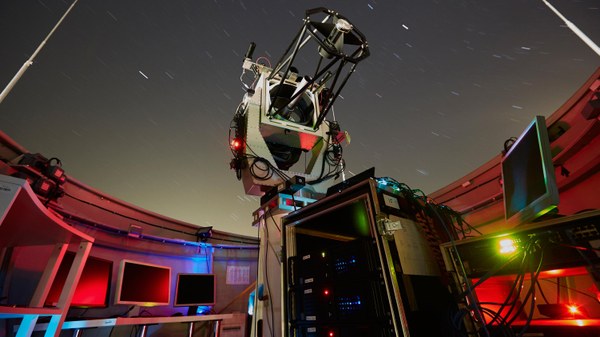Security, Quality, IntegritySignal and Performance Monitoring
GNSS Performance Monitoring website shows the performance of various satellite navigation systems
Signal and Performance Monitoring
Continuous analyses of the navigation signals available worldwide from Galileo (EU), GPS (USA), GLONASS (Russia) and Beidou (China) help to draw conclusions about the quality and reliability of Galileo, as well as its potential for improvement.
Although the performance of each global navigation system is regularly published by the operators, a direct comparison is hardly possible because the parameters are calculated differently. The DLR platform uses a consistent data basis as well as the same calculation methods and indicators.
Signal and Performance Monitoring
The aim of this project is to continuously monitor the reliability and quality of navigation signals, quickly recognise errors and pass this information on to users. To achieve this, a monitoring system is being set up that is capable of detecting deviations from the normal state of the navigation systems, analysing these deviations and sending warnings to users if necessary. This project is primarily focused on supporting the development and operation of the European navigation system Galileo, but can also be used in a second phase for the global navigation systems GPS, GLONASS and Beidou/BDS, which have already been developed, in order to enable fair comparisons between the systems.
The Signal and Performance Monitoring project consists of two parts:
- Monitoring of navigation signals at user level
- High-precision signal analysis with highly directive antennas.
Monitoring of navigation signals at user level
To support and complement the existing routine monitoring of navigation signals for accuracy and integrity, a dedicated GNSS receiver network with real-time data transmission will be set up and operated. Observation and navigation data from the receiver network will be archived in a long-term database.
This enables in-depth performance monitoring of the signal and service quality of the navigation systems and - as a result - the provision of short and long-term analyses and trends. This is carried out not only for Galileo, but for all global navigation systems, allowing the service quality and availability for Galileo, GPS, GLONASS and BeiDou to be analysed and viewed simultaneously.
The performance of each global navigation system is regularly published by the respective operator, but different parameter calculations are generally used, making it difficult to identify similarities and differences in the performance of the various systems. In this project, a common data basis as well as the same calculation methods and indicators are used for all navigation systems.
High-precision signal analysis with highly directional antennas
The data from the GNSS receiver network is continuously analysed using special algorithms in order to promptly detect deviations from the normal state. For each deviation, a control measurement is automatically planned and carried out using highly directive antennas (such as the 30 m parabolic antenna in Weilheim). By using these highly directive antennas, the analysed navigation signal can be highlighted and amplified from the noise. This enables the signal emitted by the satellite to be analysed very precisely across its entire bandwidth. As a result, any errors can be determined extremely reliably and with very high precision and recommendations can be made for the usability of the signals for users or applications.
The performance analysis system for the navigation systems will not only provide generally recognised key performance indicators (KPIs). Rather, newly developed algorithms for error detection and analysis will be implemented, which are based on modern methods such as artificial intelligence.
This allows both known and as yet unobserved GNSS errors and anomalies to be recognised automatically. It is also expected that ageing effects and their influence on performance can be detected and analysed. The development of these highly complex algorithms will benefit both from experience with the implementation of classic KPIs and from the large amount of available data in the database.
The information on possible errors, ageing processes and their effects on the performance of the European Galileo navigation system will contribute significantly to the further development and competitiveness of Galileo.
GNSS Performance Monitoring Website
Signal and Performance Monitoring in the DLRmagazin No.174







